Carolyn Penstein Rosé
Robust Knowledge Graph Completion with Stacked Convolutions and a Student Re-Ranking Network
Jun 11, 2021
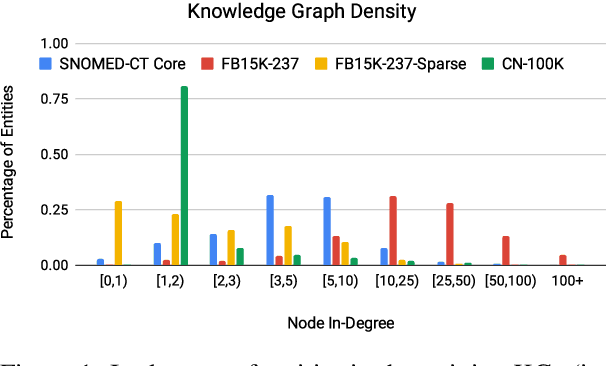
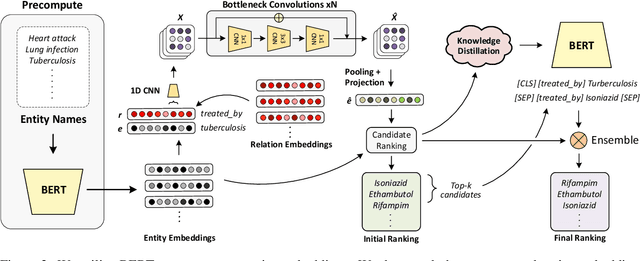

Abstract:Knowledge Graph (KG) completion research usually focuses on densely connected benchmark datasets that are not representative of real KGs. We curate two KG datasets that include biomedical and encyclopedic knowledge and use an existing commonsense KG dataset to explore KG completion in the more realistic setting where dense connectivity is not guaranteed. We develop a deep convolutional network that utilizes textual entity representations and demonstrate that our model outperforms recent KG completion methods in this challenging setting. We find that our model's performance improvements stem primarily from its robustness to sparsity. We then distill the knowledge from the convolutional network into a student network that re-ranks promising candidate entities. This re-ranking stage leads to further improvements in performance and demonstrates the effectiveness of entity re-ranking for KG completion.
RESPER: Computationally Modelling Resisting Strategies in Persuasive Conversations
Jan 26, 2021
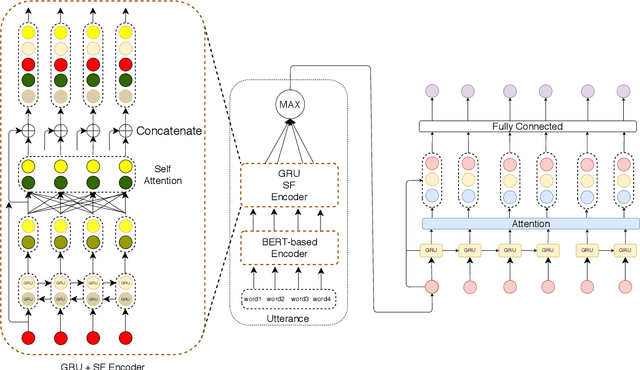

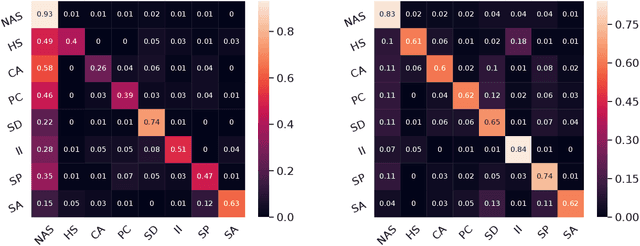
Abstract:Modelling persuasion strategies as predictors of task outcome has several real-world applications and has received considerable attention from the computational linguistics community. However, previous research has failed to account for the resisting strategies employed by an individual to foil such persuasion attempts. Grounded in prior literature in cognitive and social psychology, we propose a generalised framework for identifying resisting strategies in persuasive conversations. We instantiate our framework on two distinct datasets comprising persuasion and negotiation conversations. We also leverage a hierarchical sequence-labelling neural architecture to infer the aforementioned resisting strategies automatically. Our experiments reveal the asymmetry of power roles in non-collaborative goal-directed conversations and the benefits accrued from incorporating resisting strategies on the final conversation outcome. We also investigate the role of different resisting strategies on the conversation outcome and glean insights that corroborate with past findings. We also make the code and the dataset of this work publicly available at https://github.com/americast/resper.
Combining Model-Free Q-Ensembles and Model-Based Approaches for Informed Exploration
Jun 12, 2018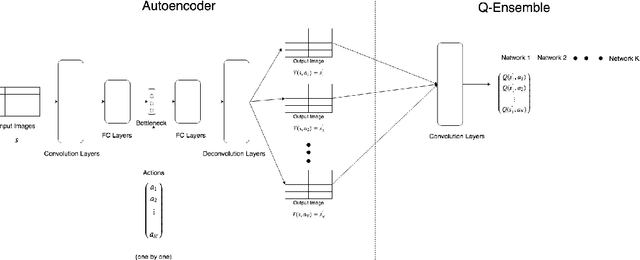
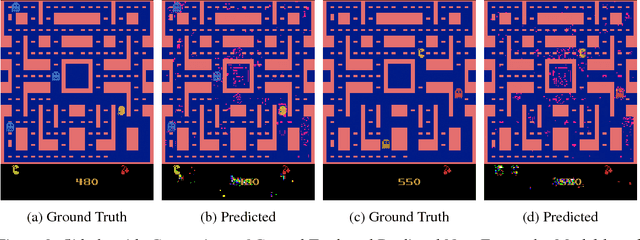
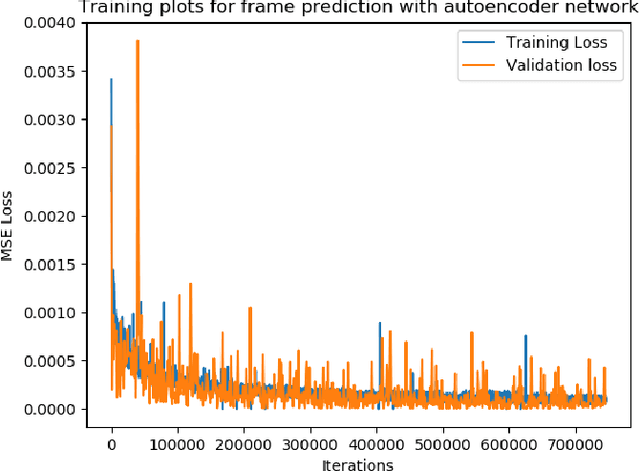
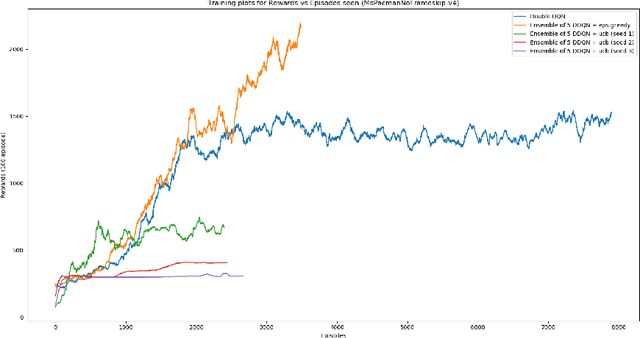
Abstract:Q-Ensembles are a model-free approach where input images are fed into different Q-networks and exploration is driven by the assumption that uncertainty is proportional to the variance of the output Q-values obtained. They have been shown to perform relatively well compared to other exploration strategies. Further, model-based approaches, such as encoder-decoder models have been used successfully for next frame prediction given previous frames. This paper proposes to integrate the model-free Q-ensembles and model-based approaches with the hope of compounding the benefits of both and achieving superior exploration as a result. Results show that a model-based trajectory memory approach when combined with Q-ensembles produces superior performance when compared to only using Q-ensembles.
Coordinating Collaborative Chat in Massive Open Online Courses
Apr 18, 2017

Abstract:An earlier study of a collaborative chat intervention in a Massive Open Online Course (MOOC) identified negative effects on attrition stemming from a requirement for students to be matched with exactly one partner prior to beginning the activity. That study raised questions about how to orchestrate a collaborative chat intervention in a MOOC context in order to provide the benefit of synchronous social engagement without the coordination difficulties. In this paper we present a careful analysis of an intervention designed to overcome coordination difficulties by welcoming students into the chat on a rolling basis as they arrive rather than requiring them to be matched with a partner before beginning. The results suggest the most positive impact when experiencing a chat with exactly one partner rather than more or less. A qualitative analysis of the chat data reveals differential experiences between these configurations that suggests a potential explanation for the effect and raises questions for future research.
* 8 pages
 Add to Chrome
Add to Chrome Add to Firefox
Add to Firefox Add to Edge
Add to Edge